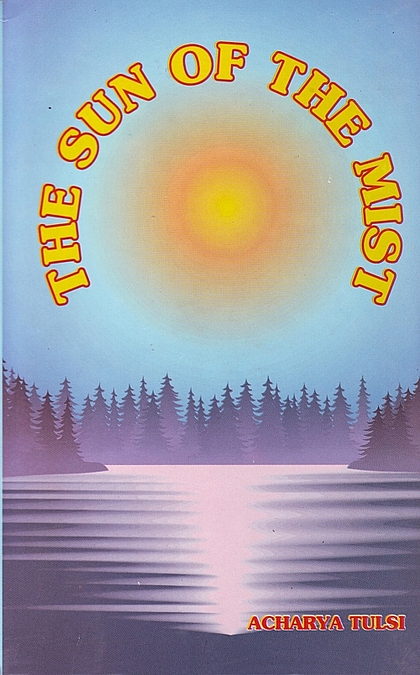There are many windows through which one may peep into a nation’s life. One such window is literature. The maker of literature does not only create literature; he is also the Creator of the art, culture and humane values of his country. He observes the contemporary reality and delineates it in his art. All his mental faculties and processes are wholly given to creation. The constructive criticism of a literary artist purifies and elevatesthe nation, gives a direction to society, and a new philosophy to the individual. The maker of literature occupies no seat of power, and yet his importance is no less than that of any emperor or administrator. The ruler has authority; he has law; while the writer has his pen and his power of original thinking. He has his vision, and his ecstasy. He can only see what he sees. He unites his vision with the times and gives expression to contemporary truth. At times, his pen produces an explosion, more terrific that of any atom bomb. But then he must be a genuine writer.
The present age is an age of adulteration—adulteration in food, adulteration in relationship, adulteration in thought, adulteration in one’s personality, and adulteration even in religion and god. Under these circumstances, how can a literary artist remain untouched and pure? He also sways with the current; has a negative vision, nourishes frustration, adopts a repugnant tone, and -is very much concerned that his ego be not hurt or repudiated. However, in this tainted world, I came across one man whom I had an opportunity to observe closely for long, andwho proved to be an exception to the rule. That man, known as Jainendra Kumar, with his personality wholly merged into the infinite, has become a symbol thereof.
How and when Jainendra Kumar became a writer, the companions of his age could tell. But when l met him, he was already established. In order to write, he never sought a solitary place, far from the madding crowd. Nor was he dependent on a particular mood for his writing and thinking. Whatever he thought, spoke, wrote or dictated naturally, with perfect ease, was always original and instantly became an invaluable trust for all mankind.
Shri Jainendra Kumar was inward—looking. He rose far above his individual attachments. What he did not like, he attacked openly, but without any trace of personal malice. He had deep faith in non-violence. He was in fact very much pained when he saw that non-violence was losing its glory in the country of Mahavir and Gandhi. He often said that as compared to the efforts of the believers in violence, not much work had been done in the field of non-violence. Out of this disillusionment originated the idea of ‘universal non-violence’. He was very keen on doing something about it. He even presented a synopsis of his programme of work to achieve non-violence. Through research, training, and practice, he wanted to restore to non-violence its pristine strength so that it could squarely face the challenge of violence. But fate willed othenlvise. Suddenly he fell ill, his voice and pen grew still, and his dream of establishing non-violence in social and national life remained only a dream. It is now incumbent upon the true devotees of non-violence to transform Jainendra Kumar's dream into reality and thus fulfil his unrealisedambition.
One characteristic feature of Jainendra Kumar’s personality was his self—respect. He was never overcome by his ego, but he would not let go his self-esteem under any circumstances. No sacrifice was too much to preserve his self—respect. No lure of profit could make him give up his principles. His patience was unique. He believed in living a pure life. He never sat in meditation.But it often seemed that he had touched the depths of meditation. There was nothing superficial about his thoughts. Only a profound thinker like him can successfully unite literature and art with religion and spirituality.
Shrijainendra kumar was not only a pre-eminent writer, but was also a top-ranking story—teller and novelist. His novels were widely and critically reviewed. And it was as it should be. Only he, who has a distinct individuality of his own, attracts criticism. If there is no criticism forthcoming, it means that the writer is lacking in vitality. According to a poet, A man, who has no friends and foes and commands no emulation or revulsion, is born in vain.Criticism of his work never made Jainendra kumar feel angry or accursed or in any way agitated. He could thus live a unanimous life, free from tension. I generally do not get immediately impressed by any man. But Jainendraji did leave a lasting imprint upon my mind. Our first meeting, though, was rather superficial. I saw him for the first time in Sardarshehar about 47 Years ago. Just a casual meeting. But after eight years, we met again at Delhi on the occasion of the first Anuvrata gathering, and this meeting brought us closer to each other. Afterwards our intimacy grew progressively. For a long time now, not a single year passed without his coming to see me. He grew attached to the Anuvrata movement. He himself became an Anuvrati, and later became the President of the All-India Anuvrata Committee. He was the spokesman for the Anuvrata movement, and was honoured with an Anuvrata award. Family relations were established between him and other Anuvrata workers like Suganch and Anchalia, Jaichand Lal Daftri, Devendra Kumar Karnawat, etc. The Anuvrata movement had great hopes of him, With his passing away not only has the world of literature suffered an irreparable loss, but a void has been created in the row of spiritual writers as well. An earnest effort to fill up that void is the any true memorial to a writer. ‘That the age of which Jainendraji was so powerful a representative would never allow the sun of his achievement to set, is our ardent hope.
 Acharya Tulsi
Acharya Tulsi
